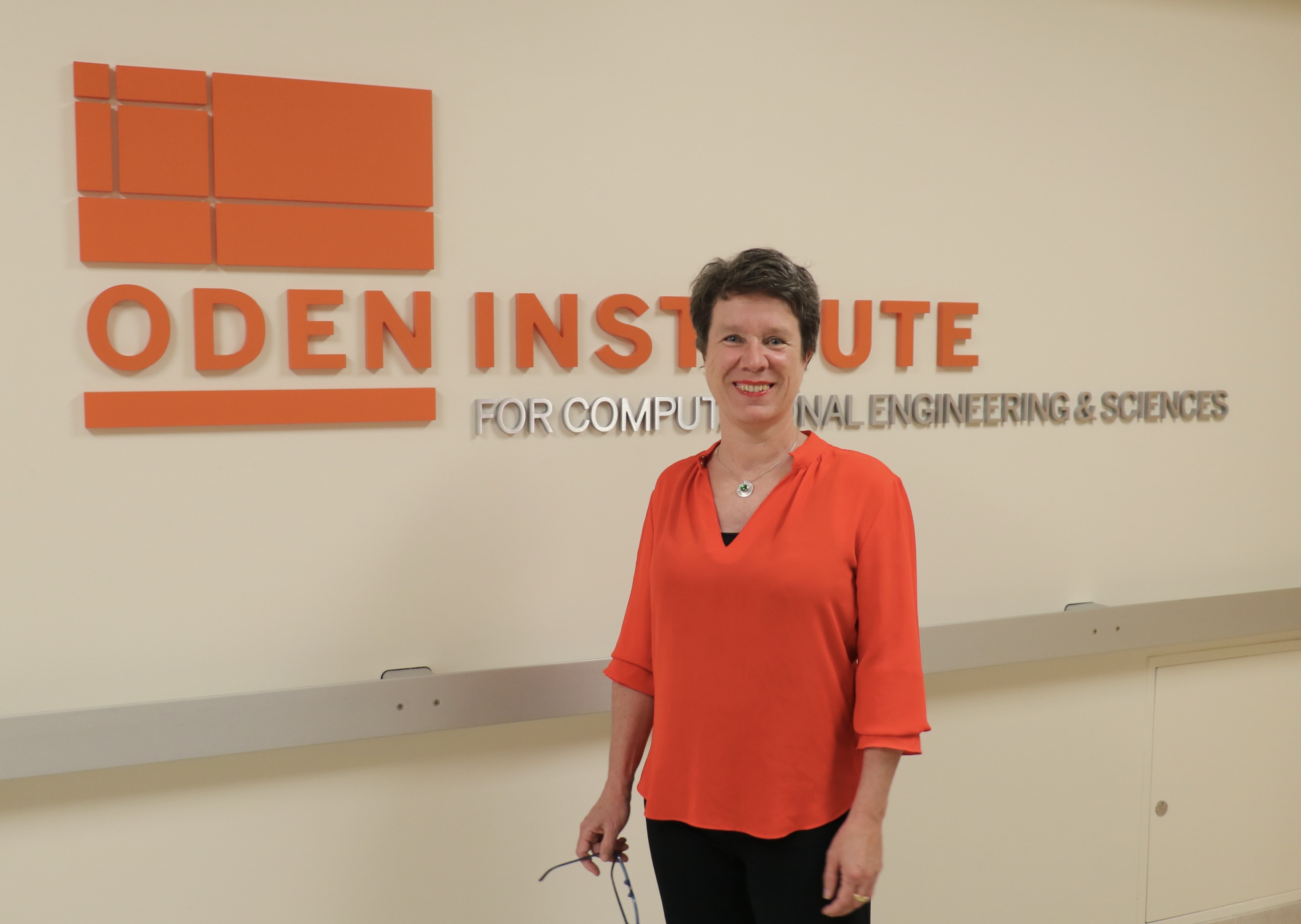Barbara Wohlmuth is a German mathematician specializing in the numerical solution of partial differential equations. She holds the Chair of Numerical Mathematics at the Technical University of Munich. She is also a member of the Oden Institute’s Board of Visitors (BOV), a current JTO Visiting Fellow, and as of last week, a new member of the prestigious German National Academy of Sciences.
This significant honor puts Wohlmuth in the company of towering scientific figures, including Albert Einstein, Max Planck, Charles Darwin and Marie Curie.
Her election to the academy is also a significant recognition of the importance of computational science to the international community. The German National Academy of Sciences is one of the oldest and most respected proponents of basic science in the world. The fact that they would elect Wohlmuth – a computational applied mathematician – establishes the field as a principal core area for scientific knowledge.
Wohlmuth is first and foremost a mathematician with an emphasis on numerical analysis, numerical algorithms and discretizations. Her deep understanding of the mechanics of computational modeling has lent itself to a variety of applications – from classical additive manufacturing processes to earthquake simulations, to contributions in the burgeoning field of computational medicine, fluid dynamics and geosciences.
She is Director of the Technical University of Munich’s (TUM) International Graduate School of Science and Engineering (IGSSE) – a program devoted to interdisciplinary research at one of Europe’s leading technical universities.
Wohlmuth has had strong ties to the Oden Institute for a number of years. She was instrumental in the creation of a Memorandum of Understanding between IGSEE and the Institute for collaborative research that has led to several joint research projects and international scientific meetings involving UT Austin and TUM faculty and students.
Wohlmuth has worked with a number of researchers within the Institute including J. Tinsley Oden, Tom Yankeelov, Omar Ghattas, Patrick Heimbach, Chandra Bajaj, Irene Gamba and Nichole Rylander.
Her connections with the Institute don’t end there. She has been a JTO Visiting Fellow for the last five years and is also a member of the Oden Institute Board of Visitors.
Recognition from the German National Academy of Sciences is a major accomplishment for any scientist but has additional significance for Wohlmuth. “I will be one of a select number of female scientists elected to what is considered a very conservative academy,” she said.
Wohlmuth has seen some improvements to the gender balance in STEM over the last two decades. But change is slow. “There is a much greater awareness that change is needed and while things are improving it takes time. Up until 10 years ago, I frequently found myself as the only female mathematician in the room.”
In the Oden Institute director, Karen Willcox, Wohlmuth sees a fantastic role model and champion for change. “Karen is doing a fantastic job in shaking things up,” she said. The Rising Stars workshop, for example, is a hugely important event for raising awareness.”
